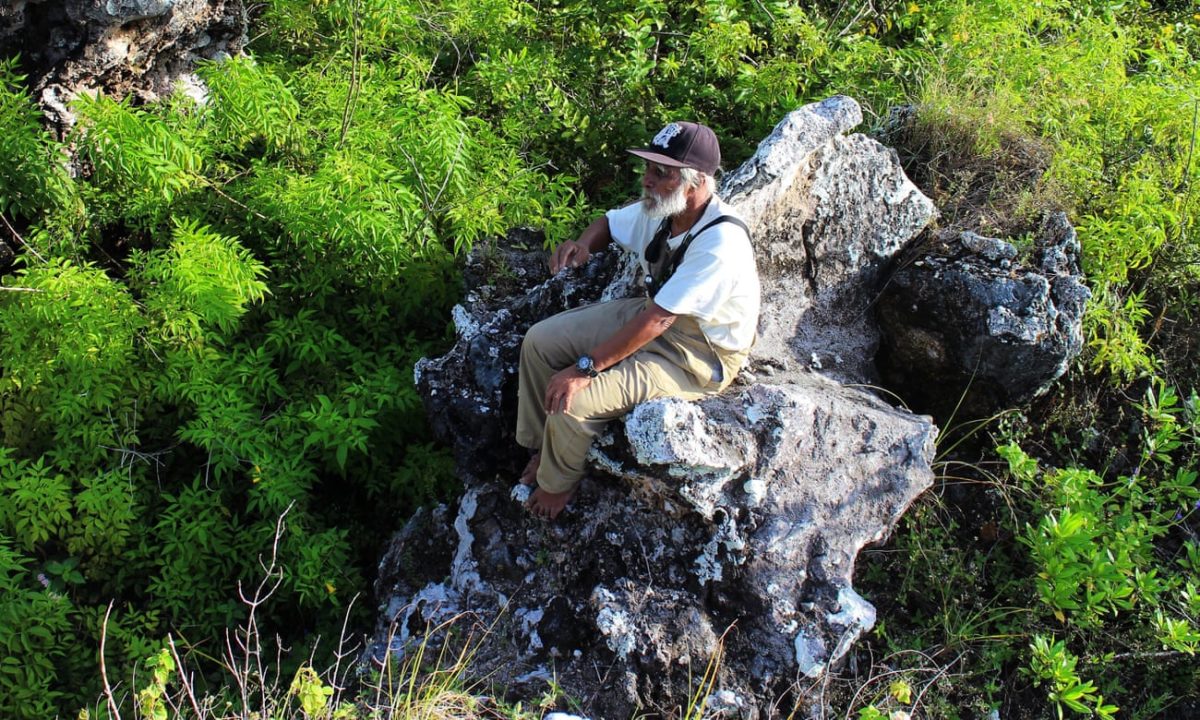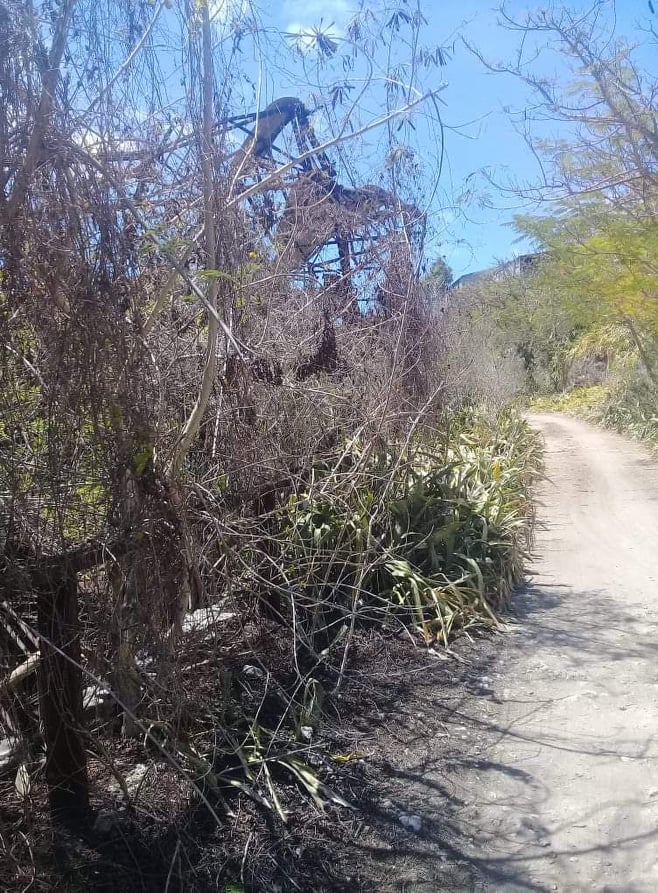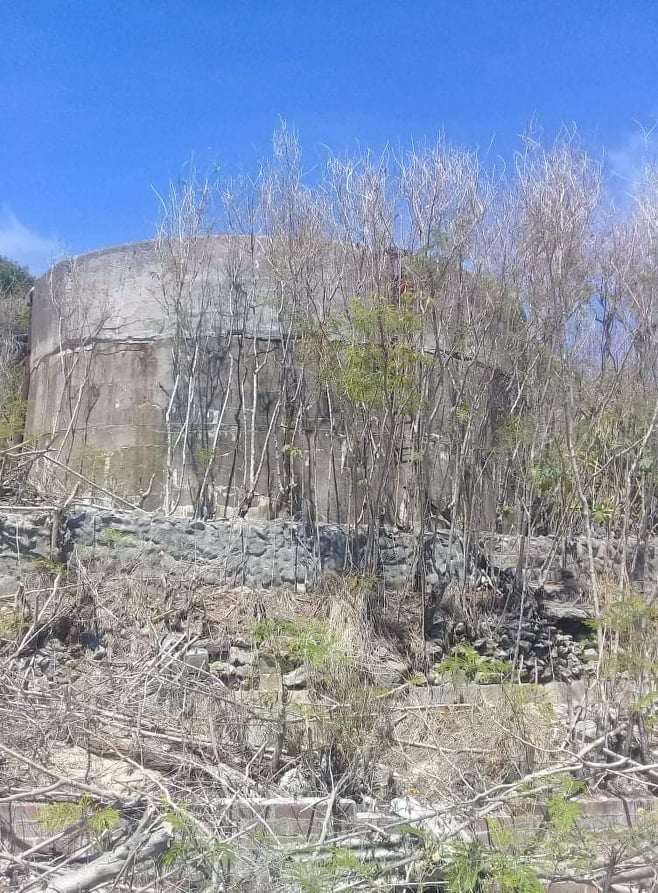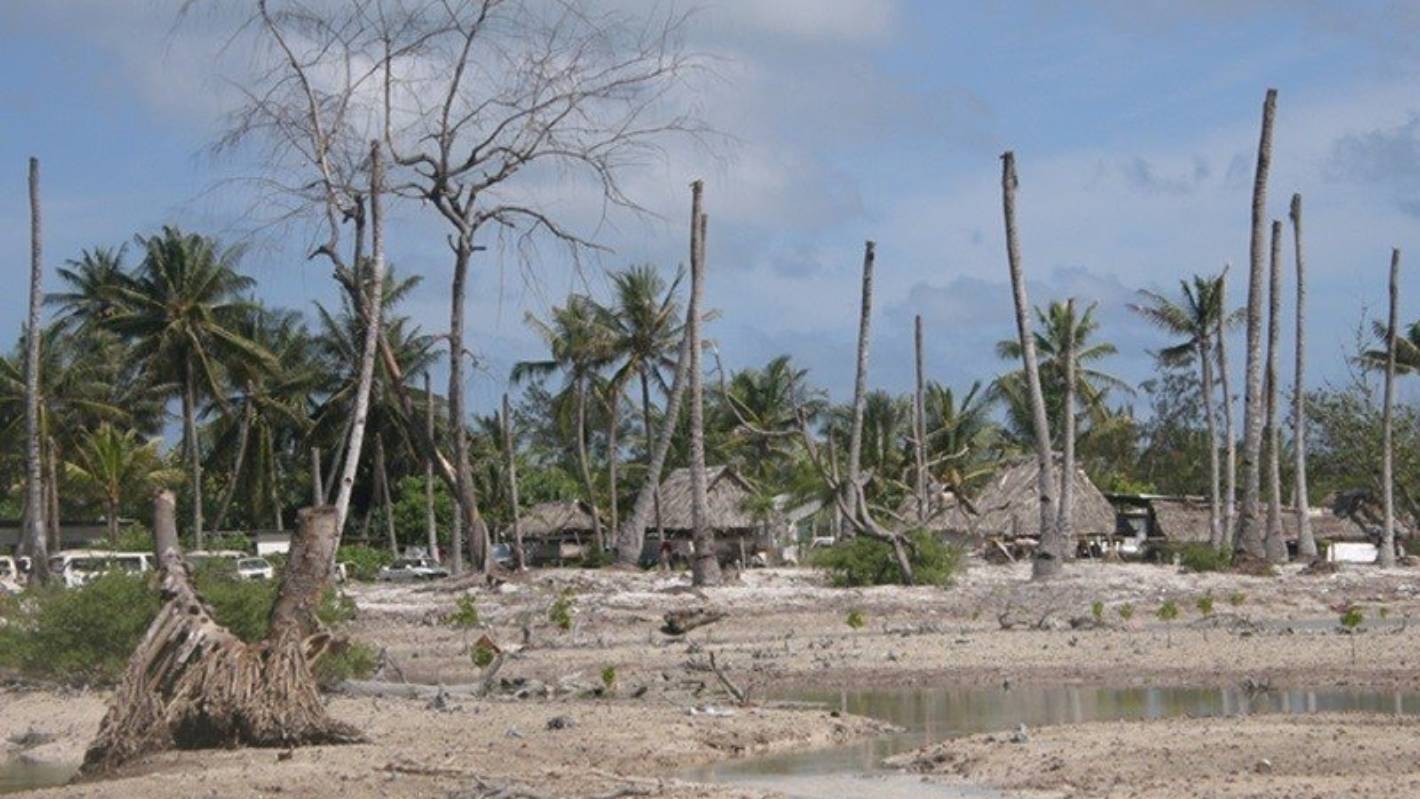The Kiribati island survived droughts due to sacred caves that captured rainfall but uncontrolled phosphate extraction ruined this precious resource
The last decent rain on Banaba was more than a year ago.
Without rain, people on the isolated central Pacific island, which is part of the country of Kiribati, have been forced to rely on a desalination plant for all their water for drinking, bathing and growing crops.
But in late November the plant broke down and the situation became desperate for the nearly 300 people living there. Harrowing stories emerged of people forced to drink contaminated water, outbreaks of diseases and fears of starvation.
“Skin disease and diarrhoea are widespread, especially in children, because we’ve had no choice but to drink contaminated water or saltwater,” says a Banaba resident, Taboree Biremon. “The children are not OK because they don’t understand. They want food they can’t receive. We just feel so sad about it but there’s nothing we can do.”
For three months’ residents had no fresh water to drink, no food other than fish because all their crops died and were not able to bathe, Taboree says.
“We also couldn’t sleep, because all we wanted to do was search the island for water. We’re just looking for a way to survive. The feeling we have is we’re just drifting out in the sea, lost, and no one cares.”
A ship from the Kiribati capital, Tarawa, 400km away, did eventually arrive in March, delivering bottled water and equipment to set up a new desalination plant.
But Banaban elders say relying on support from faraway places is not sustainable, especially as the climate crisis worsens.
“Desalination plants are not a solution,” says Roubena Ritata, an elder. “How long until this one breaks and we’re back in the same situation? What we need is the rehabilitation of our island.”
Banaban leaders are seeking a long-term fix. In fact, they seek a solution that would see them return to a traditional method of capturing and collecting water, a method that allowed their ancestors to survive on the island for centuries.
To achieve this the elders are writing to the Australian and New Zealand governments, asking for support for a monumental job of rebuilding or cleaning an underground network of sacred caves, known as te bangabanga.
Australia and New Zealand contributed to the destruction of te bangabanga during the 20th century through phosphate mining, which was begun by the Australian prospector Albert Ellis in 1900.
For the next 80 years, the British Phosphate Commission, equally owned by Australia, New Zealand and the UK, mined Banaba so extensively that about 90% of the island’s surface was stripped bare. By the time BPC left, 22m tonnes of land had been removed.
“The devastation is absolutely a result of their activity,” says Katerina Teaiwa, a Banaban scholar, associate professor at the Australian National University and the author of Consuming Ocean Island: Stories of People and Phosphate from Banaba. “They came in, had a big party, made lots of money and left.”
Perhaps most damaging is the impact the mining had on te bangabanga. Banabans have historically been able to survive droughts due to the natural ability of the caves to capture and store water.
But according to elders, nearly all of the caves were destroyed and the few that remain have been contaminated.
“For many Banabans, te bangabanga now exists only in the stories and dances passed down through the generations,” says one elder, Pelenise Alofa, adding that historically, only women could enter the caves, which anchored women’s importance in the community. “That’s all been lost now …
“We perform dances and tell stories of how our ancestors found the caves during a bad drought. It’s part of who we are, but I thought these problems would be solved by now – instead they get worse.”
Alofa says elders would like to see Australia and New Zealand fund a team of researchers to travel to Banaba to assess the damage and repair the caves.
There have been earlier attempts by Banabans to receive compensation for what was done to their land – resulting in some minor wins. In 1976 a group sued Britain for its role in the devastation: the court ruled that while the UK had a moral debt it had no legal obligation.
The British government did eventually offer Banabans an ex-gratia payment of AUD$10m (US$7.1 million) on behalf of the BPC partner governments on the condition they dropped all further legal action.
Now Banabans say the drought has solidified their resolve to seek compensation and find a long-term solution.
While Banaba is home to just 300 people, it has a diaspora of nearly 6,000. Most Banabans were forcibly relocated to the Fijian island of Rabi when mining restarted after a hiatus during the second world war.
“Every Banaban in Fiji and our diaspora communities in Auckland desire to go back to Banaba and reconnect with our homeland but the devastation caused by mining means there’s no place for people to settle,” says Rae Baineti, a youth leader and the director of the Kiribati Auteroa Diaspora Directorate.
He adds: “As an activist, I teach the young generation to stand their ground and be brave. I encourage them to have this conversation, to hold governments who contributed to the destruction of our land to account.”
Another impact of mining was the construction of dwellings using asbestos, which when inhaled can lead to lung cancer and mesothelioma, both fatal diseases.
Mike McRae-Williams, an Australian environmental specialist with more than 30 years’ experience in the mining sector, was in 2008 contracted to travel to Banaba to assess the seriousness of the situation. “Our conclusion was that it is extremely serious,” he says. “It’s definitely a health hazard to the people living there and will have significant health impacts. I doubt anything has been done about it.”
Teaiwa says Banabans’ calls for rehabilitation must be heeded: “We need to move away from this same continuous narrative of ‘the poor Banaban people, who have no water, help them’ and move towards an approach that is actually finding a solution.
“This whole thing is a series of crises. We can’t just keep telling the story of devastation and vulnerability over and over again. Where does the crisis end, if not with justice?”
A spokesperson for New Zealand’s Ministry of Foreign Affairs and Trade said it supported the Kiribati-led emergency relief effort to the island on 10 March but declined to comment on Banabans’ pleas for New Zealand and Australia to fund a long-term solution to the water crisis. Australia’s Department of Foreign Affairs and Trade did not respond to repeated requests for an interview.
This story was produced by Joshua Macdonald at The Guardian on 8 June 2021, reposted via PACNEWS.
Banner: Roubena Ritata sits on a rock on Banaba, a central Pacific Island that is part of Kiribati. Photo: Janice Cantieri




